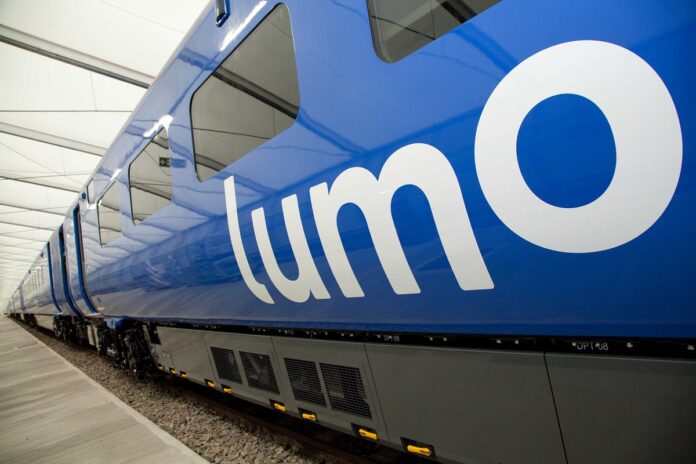FirstGroup plc is seeking to dramatically expand its ‘open access’ rail operations through its successful low-cost brand, Lumo, with a bid to boost connectivity, enhance UK productivity, and significantly increase passenger choice across the country.
The ambitious expansion aims to replicate the material growth Lumo has driven on the East Coast Main Line since launching its popular Edinburgh to London service. Crucially, Lumo operates without government subsidy and contributes more per train mile to infrastructure investment than any other long-distance operator—a model that delivers growth and local community connectivity at a substantial benefit to the taxpayer.
FirstGroup has submitted the first phase of three separate applications to the Office of Rail and Road (ORR) for new and extended open access rail services:
- Rochdale to London Euston: A revised application for new services via Manchester Victoria, aiming for a December 2028 start.
- Stirling to London Euston: An extension to Lumo’s current track access agreement to operate services beyond 2030.
- Cardiff to York: A completely new route via Birmingham, Derby, and Sheffield, also targeting a December 2028 launch.
This planned expansion is backed by a potential continued investment of c.£300 million in UK manufacturing, securing long-term jobs through the purchase of new trains. If approved, FirstGroup will commit to investing in new Hitachi trains built in County Durham, including eight battery electric trains—five for the Stirling route and three for the Rochdale route—supporting jobs at Hitachi’s Newton Aycliffe plant. Refurbished Class 222 trains will be deployed on the Cardiff-York services.
Boosting Connectivity: North West to London & Wales-York Corridor
Rochdale-London
The new Lumo service would introduce the first direct service between Rochdale and London since 2000. Calling at Manchester Victoria, Eccles, Newton-le-Willows, and Warrington Bank Quay, the route will provide 1.6 million people in the North West with a convenient and competitively priced direct link to the capital.
The proposed schedule includes three new return services on weekdays and Sundays, and four on Saturdays. This is expected to encourage a shift from cars to rail and deliver economic benefits for regeneration areas like Atom Valley and the Liverpool City Region Freeport scheme.
The application has been revised and supported by extensive modelling to address the ORR’s network capacity concerns, which led to the rejection of the original application in July 2025. The company now asserts it has identified sufficient space, making use of recent Government investment in power supply for the West Coast Mainline (WCML).
Cardiff-York via Birmingham and Derby
The new Cardiff-York route aims to connect all four main lines from the Great Western Main Line to the East Coast Main Line, joining up the entire Great British Railway network. The plans will deliver more capacity and drive passenger demand on a previously underserved corridor.
The application proposes six return services each weekday—a significant increase from the current single weekly service. Bringing Lumo’s popular low-cost model to this corridor will support local communities along the route, which have a combined population of more than 2.5 million. It is expected to provide access to jobs and services, aligning with significant public and private sector investment along the corridor, including the Cardiff Capital Regional Investment Zone and the West Midlands Investment Zone.
Stirling-London
Extending the track access agreement for the existing Stirling route beyond May 2030 will support investment in the city and its wide catchment area, which has an estimated three million people living within an hour’s drive. The four return services on weekdays and Saturdays, and three on Sundays, are expected to commence early in the company’s 2027 financial year.
The ORR will now undertake a consultation and discuss the applications with Network Rail to secure the necessary approvals.
Graham Sutherland, FirstGroup Chief Executive Officer, said:
“We have extensive experience of running open access rail operations in the UK, and passengers consistently rate our services highly. Our new services will allow us to bring the substantial benefits of open access to even more communities, at no additional cost to the taxpayer. Lumo also pays more towards infrastructure investment than other long-distance operators, delivering growth on the railway and connectivity to local communities, so the whole system gains.
“Our open access services connect previously under-served communities and unlock private investment, creating jobs and shifting travel towards more sustainable options. We look forward to working closely with stakeholders as we develop our applications.”
Image credit: FirstGroup plc





